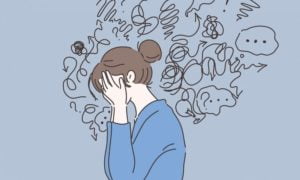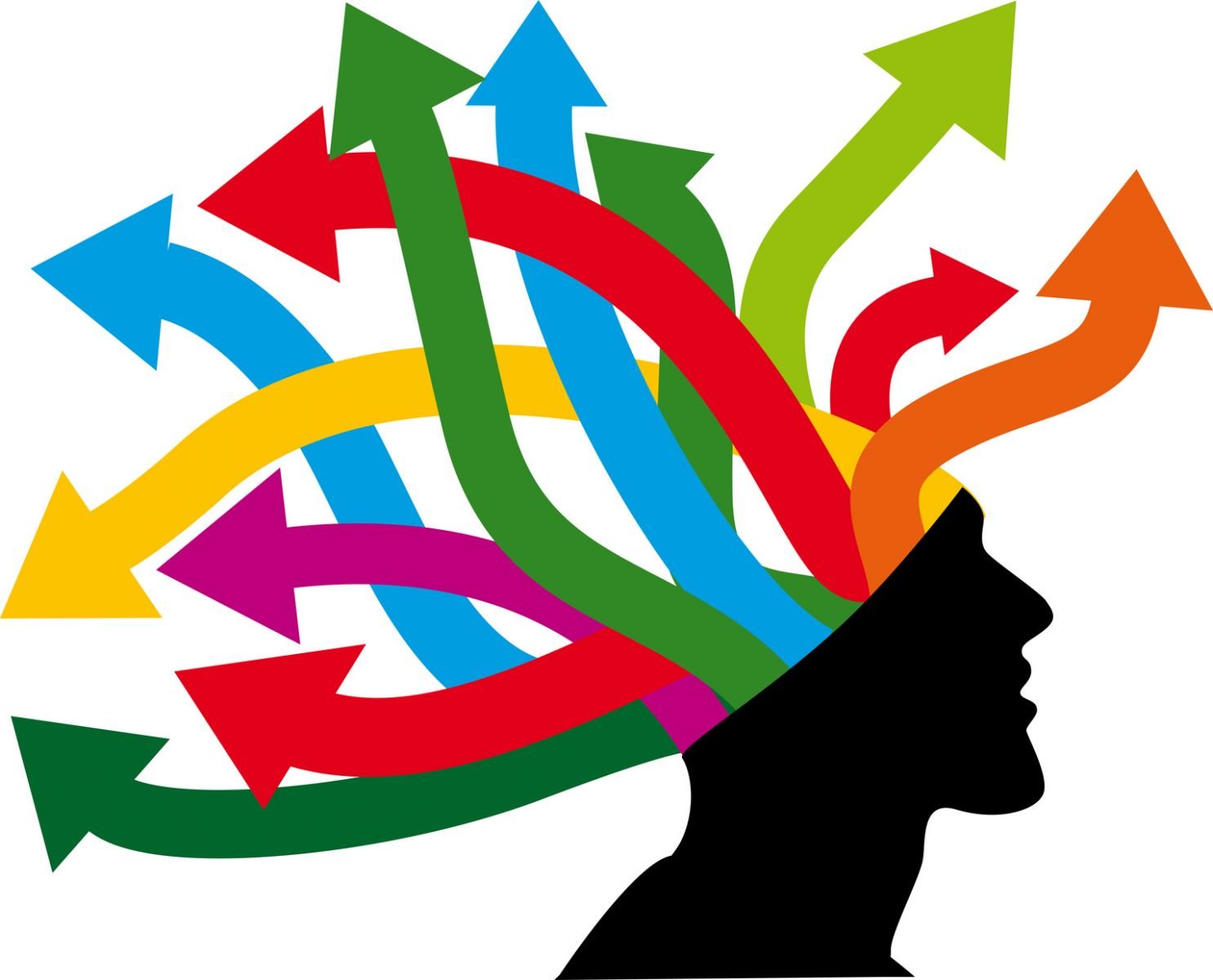Before we begin, we would like to thank you for your support on our channel. Our mission is to help everyone learn about psychology in a digestible way. Now let’s start. Despite the growing number of online resources on mental disorders, there’s still a lot of misinformation and stigma surrounding them. Mental disorders are sometimes misrepresented and even glamorized on social media, and personality traits can be mistaken for mental disorders or vice versa. As such, this video aims to raise awareness about different mental disorders. However, it should not be used to self-diagnose. Please seek help from a licensed mental health professional to avoid improper diagnosis. With that said, let’s begin. One, perfectionism and OCD. According to the American Psychological Association, perfectionism is the desire to achieve an extremely high level of performance, accompanied by overly critical self-evaluations, and other people’s evaluations of you.
In people with obsessive compulsive disorder, perfectionism often manifests in compulsions or the need to do something like organizing things in a particular way or repeatedly doing something in a way that disrupts their normal life. Unlike perfectionism in typically functioning people or people with anxiety or major depressive disorder, people with OCD are perfectionists in response to the obsessive part of their disorder. Failure to follow through with the perfectionist compulsions often leads to feelings of
- anxiety,
- panic,
- a sense of doom
that can harm their personal life and relationships. As such, praising people with OCD for their perfectionism or attention to detail can be harmful, because it negates the uncomfortable and fearful feelings that motivate their actions. Not only that, using the term Oct. describe a perfectionistic typical functioning person downplays the struggles of people who are actually diagnosed with OCD.
Procrastination and major depressive disorder

Two, procrastination and major depressive disorder. While procrastination is a common trait, it can occur as a side effect of major depressive disorder or clinical depression. Research has linked brooding and lower levels of self-compassion with procrastination to factors that are also common signs of depression. Other symptoms of depression that might cause procrastination are fatigue, difficulty concentrating, restlessness, and feelings of hopelessness or emptiness. It can be difficult for those experiencing a depressive episode to be productive, because even small tasks like getting out of bed take a lot of energy to accomplish.
Those who don’t understand how it feels to have depression may label those with major depressive disorder as lazy or bad with time management. But their procrastination may stem from their disorder rather than their personality. Three, suspicion and paranoid personality disorder. While most people have jumped to conclusions or felt like they’re being watched at some point in their life, when these suspicions are almost constant, they could be a sign of paranoid personality disorder.
Symptoms of paranoid personality disorder include: fear that people in your life are trying to harm you without evidence, extreme distrust and suspicion that others will use your words against you, and reading malicious intent in people’s benign or indifferent actions towards you and lashing out in response. Paranoia could also be a symptom of mental disorders such as schizophrenia or borderline personality disorder. Because personality disorders affect parts of someone’s personality, it may be even harder for people without a mental health background to distinguish between someone’s personality and their mental disorder.
It’s important to have empathy in these situations and avoid telling people who have been diagnosed with these personality disorders that they’re overreacting, because this creates a false narrative that associates paranoia with their personality.
Shyness and social anxiety disorder

Four, shyness and social anxiety disorder. Although there can be overlap between shyness and social anxiety, shyness is a personality trait, that is usually defined as hyper-awareness of other people, physical symptoms, such as shaking and sweating and quietness or withdrawal in social situations. While social anxiety is presented as more intense and distressing towards a person’s everyday functioning. In addition, the basis of shyness comes from someone’s personality, while social anxiety stems from fear. People who are shy are usually aware of themselves in social situations, and take a longer time to open up to and get to know others, but they don’t feel it as strongly or worry about it as mochas people with social anxiety disorder do.
Social anxiety can cause people to panic. And as a result, they often avoid social situations because it triggers fear responses and they might be extremely fearful of people’s judgments. This anxiety goes far deeper than the discomfort that may come from shyness.
Egotism and narcissistic personality disorder
Five, egotism and narcissistic personality disorder. You can probably think of a person who has talked themselves upend boasted about their successes at some point. But if this person vastly exaggerates their accomplishments, finds it difficult to empathize with others, and demand special treatment from everyone, including people of the same or higher qualification, they could be suffering from narcissistic personality disorder, rather than an egotistical personality.
Impulsivity and bipolar disorder

Six, impulsivity and bipolar disorder. Impulsivity is often seen as a fun and even desirable trait, with self-help resources frequently encouraging us to switch up our routine. But in the case of bipolar disorder, impulsivity comes in the form of risky decisions that people with BD may later regret doing. Impulsivity in people with bipolar disorder usually occurs during manic episodes, heightened moods that typically come with increased energy, multitasking and irritability, and an increased risk for dangerous or harmful behaviors.
Examples of impulsive behaviors someone with bipolar disorder might do are:
- spending sprees,
- gambling,
- reckless driving,
- unprotected sex,
- drug use,
- binge eating and drinking.
And although movies and TV shows often portray these actions as exciting, the real life consequences include: financial loss, relationship conflict, property damage, health complications and even death.
Glamorizing those takes away from what someone with bipolar disorder might be experiencing as a result.
Distraction and ADHD
Seven, distraction and ADHD. ADHD is a mental disorder that involves three types of behaviors:
- inattention,
- hyperactivity,
People who are diagnosed with ADHD may have one or a combination of these signs. People with inattentive ADHD often forget things, have trouble concentrating on a single task, struggle to be organized, and have difficulty paying attention to others. For a person who is less educated about ADHD, they may take negatively to a person with inattentive ADHD for not listening to them or caring about them, when in fact their disorder makes it difficult for them to pay attention without getting distracted by their thoughts or external stimuli.
Attention seeking and histrionic personality disorder

Eight, attention seeking and histrionic personality disorder. There are many reasons why someone might seek attention or validation from others, including low self-esteem, self-doubt, and trust issues. But if someone is a part of the two to 3% of the population diagnosed with histrionic personality disorder, their need for external validation goes beyond seeking reassurance. People with histrionic personality disorder can feel worthless or undervalued if they are not at the center of attention, and often react with strong emotional outbursts in response to these feelings.
Those with HPD might also try to retain other people’s attention through flirtatious and sometimes inappropriate behavior, bright clothing and bold claims. A person with histrionic personality disorders more than just needy or high maintenance and labeling them as such can be harmful, because it shifts the focus from their personality affecting disorder to their individual personality.
People pleasing and dependent personality disorder

Nine, people pleasing and dependent personality disorder. Many people find it difficult to say no to others and struggle to set boundaries. However, people with dependent personality disorder feel intense fear when they have to do anything by themselves, which can include everyday tasks like choosing when to wake up or what to have for breakfast. Those with dependent personality disorder are also more likely to stay in an abusive relationship, change jobs, or move to stay with their significant other or another person they’re dependent on, and jump into a new relationship immediately after their previous one ends.
At the heart of it all, the difference that sets personality traits apart from mental disorders is the impact it has on someone’s daily life. Traits such as perfectionism and attention seeking are okay for the majority of people, but when it comes to a source of significant stressing your everyday life preventing you from living normally, it may be a sign of something more and thus requires the advice and diagnosis of a mental health professional. It’s important to give people the benefit of the doubt.
There may be reasons why someone is acting in a certain way that you are unaware of. Again, please note that this article aims to clear up different ambiguities and confusion surrounding personality traits and mental disorders, but does not claim to diagnose anyone wither without a disorder.
Have you or someone you know ever experienced confusion between these traits and
Mental disorders?
What was your experience with it and how did you react?










